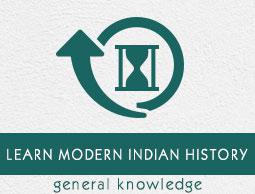Modern political consciousness was late in developing among the Muslims. As nationalism spread among the Hindus and Parsees of the lower middle class, it failed to grow equally rapidly among the Muslims of the same class.
After the suppression of the 1857 Revolt, the British officials had taken a particularly vindictive attitude towards the Muslims, hanging 27,000 Muslims in Delhi alone.
To check the growth of a united national feeling in the country, the British decided to follow more actively the policy of 'Divide and Rule' and to divide the people along religious lines. They encourage communal and separatist tendencies in Indian politics.
The British promoted provincialism by talking of Bengali domination. They tried to utilize the caste structure to turn the non-Brahmins against Brahmins and the lower castes against the higher castes.
In U.P. and Bihar, where Hindus and Muslims had always lived in peace, the British actively encouraged the movement to replace Urdu as a court language by Hindi.
Sayyid Ahmad Khan laid the foundations of Muslim communalism when in the 1880's he gave up his earlier views and declared that the political interests of Hindus and Muslims were not the same but different and even divergent.
Sayyid Ahmad Khan preached complete obedience to British rule. When the Indian National Congress was founded in 1885, he decided to oppose it and tried to organize along with Raja Shiva Prasad of Varanasi a movement of loyalty to British rule.
Sayyid Ahmad Khan urged the Muslims not to listen to Badruddin Tyabji’s appeal to join the National Congress.
Sayyid Ahmed Khan and others raised the demand for special treatment for the Muslims in the matter of government services.
Bombay was the only province where the Muslims had taken to commerce and education quite early; and the Nationalist Congress included in its ranks such brilliant Muslims as Badruddin Tyabji, R.M. Sayani, A. Bhhimji, and the young barrister Muhammad Ali Jinnah.
In his presidential address to the National Congress of 1886, Dadabhai had given the clear assurance that the Congress would take up only national questions and would not deal with religious and social matters.
In 1889, the Congress adopted the principle that it would not take up any proposal which was considered harmful to the Muslims by a majority of the Muslim delegates to the Congress.
Many Hindus began to talk of Hindu nationalism and many Muslims of Muslim nationalism.
The politically immature people failed to realize that their economic, educational, and cultural difficulties were the result of common subjection to foreign rule and of economic backwardness and that only through common effort they could free their country, develop it economically, and thus solve the underlying common problems, such as unemployment and poverty.
In 1906, the All India Muslim League was founded under the leadership of the Aga Khan, the Nawab of Dacca, and Nawab Mohsin-ul-Mulk.
The Muslim League supported the partition of Bengal and demanded special safeguards for the Muslims in government services.
To increase its usefulness, the British also encouraged the Muslim League to approach the Muslim masses and to assume their leadership.
The educated Muslim young men were, in particular, attracted by radical nationalist ideas.
The militant nationalist Ahrar movement was founded at this time under the leadership of Maulana Mohammed Ali, Hakim Ajmal Khan, Hann Imam, Maulana Zafar Ali Khan, and Mazhar-ut-Haq. These young men disliked the loyalist politics of the Aligarh school and the big nawabs and zamindars. Moved by modern ideas of self-government, they advocated active participation in the militant nationalist movement.
Maulana Abul Kalam Azad, Maulana Mohammed Ali and other young men preached a message of courage and fearlessness and said that there was no conflict between Islam and nationalism.



